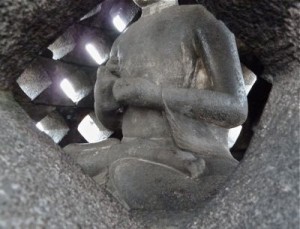Betrayal as a Journey of Transformation, Part 2: Sorting Out Betrayal

Besides inviting joy to roost nearby, one of the most positive things we can do is to learn use difficult experiences to develop compassion and to transform ourselves. This challenging and advanced topic can deepen all-purpose insight and also support those who struggle with betrayal. Please stay with me.
 Betrayal is one of the most difficult–and rewarding–emotional experiences to process positively. This makes it important to effectively resolve. My heart goes out to those who are going through betrayal. Inner experience can get so intense that even dear friends feel out of their depths and pull away, isolating those who need support. I offer this series from love.
Betrayal is one of the most difficult–and rewarding–emotional experiences to process positively. This makes it important to effectively resolve. My heart goes out to those who are going through betrayal. Inner experience can get so intense that even dear friends feel out of their depths and pull away, isolating those who need support. I offer this series from love.
What makes betrayal so hard to sort out?
Betrayal can be complex and confusing. Betrayal may involve spoken and unspoken issues of conduct, boundaries, belief, expectation, and entitlement.
Betrayal can be crushing and confusing. Disillusionment is usually part of the mix. (See Disillusionment as a Positive Process, Part 1 and 2) So is abandonment, literal or emotional.
Betrayal is a real opportunity to clean out our emotional closets and discover who we really are and how we really want to live.
Being betrayed increases your need for support while the doubts it breeds make you unbearably fragile. You may need help but fear advice and be too vulnerable to take it in. Advice may make you feel worse. You may have no idea who to trust, how to trust, and whether to trust. If you also wonder whether you are somehow to blame or feel shame you will be even more sensitive. Too much is triggered to sort it out alone, yet other people’s opinions can make you feel worse.
Betrayal can shake down deeply held beliefs, challenge our sense of self, and make us question our actions, principles, perception, values, relationships, and self-esteem. If we do the trench work of sorting ourselves out we can shed an old skin and come out renewed.
Sorting out betrayal requires that we distinguish between several different experiences. Betrayal can be:
- an incidental or accidental act someone takes due to lack of understanding or ethics
- a spiteful or vindictive act, intentionally unkind
- an unfortunate consequence of changing life paths when unexpressed needs have been handled without frankness and consideration
When you FEEL betrayed, what is happening? Allow your feelings to wash through you, feeling them in your body. Then aim to view the acts that occurred objectively, without allowing your emotions to color your interpretation. Alternate objective observation with pure feeling if you can.
These questions may be useful. (The answers can be “both”):
- Have you interpreted someone’s acts as betrayal, or are their acts betrayal by their origin, energy, and nature?
- Did you perceive the dark, shifty energy associated with betrayal, or do you feel betrayed due to unresolved issues?
- Was there any point in your circumstances when you might have known and stopped the betrayal before it happened? Without blame, ask yourself what was happening inside you when you did not or could not act.
 The question, “Did I cause this,” can arise. Soul searching–stimulated by betrayal–can develop truthful self-observation and personal clarity. Self-blame is useless. Taking responsibility is not the same as blame.
The question, “Did I cause this,” can arise. Soul searching–stimulated by betrayal–can develop truthful self-observation and personal clarity. Self-blame is useless. Taking responsibility is not the same as blame.
Processing the complexities of betrayal can require a lot of thinking. Thinking too much can interfere with feeling and expressing the grief, shock, loss, sadness, anger and other feelings that betrayal evokes. Recovery takes time and compassion. Make room for both thought and feeling.
If you get stuck on “Did I cause this,” try substituting these more-useful questions:
“What role have I played that may have contributed to this situation?”
“Have I been loyal to myself in this relationship?”
“Is there something in my life that this experience can motivate me to change for the better?”
The last post will contain rubber-hits-the-road ways to get through serious and shattering betrayal. The next few explore what is going on inside that leads us to betray or be betrayed.
What have YOU discovered about betrayal? Have you been able to find any benefit in going through it?
Please share this text series with those who will find it useful.










